Author Ray Charles
Hey Mister
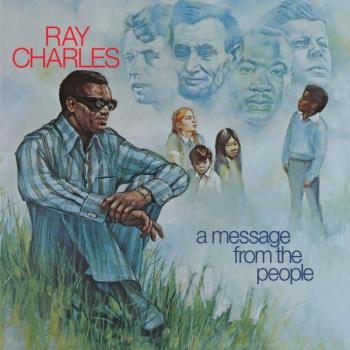
[1972]
Lyrics & music by Betty Lapcevic
Album: A Message From The People
1972 was an interesting year for Ray Charles. He was profiled in a New Musical Express article with the headlines "The Man Who Beat Drug Addiction And Blindness To Become A Legend". But also, following the lead of Marvin Gaye and Curtis Mayfield, Ray got political with the funky Quincy Jones produced single “Hey Mister”. Written as a letter to a Congressman, Ray points out “we're the richest country in the world and I just can't understand why we got so many hungry people”.
“Hey legislation why don't you try a new route
Listen to the people and hear what they're talking about
You see the poor people know they can't impeach you
They just hoping that they cries will reach you”
The song peaked at #47 on the R & B charts. On shows like Dick Cavett, Carol Burnett and even Bill Cosby, Ray performed his standard... (Continues)
Lyrics & music by Betty Lapcevic
Album: A Message From The People
1972 was an interesting year for Ray Charles. He was profiled in a New Musical Express article with the headlines "The Man Who Beat Drug Addiction And Blindness To Become A Legend". But also, following the lead of Marvin Gaye and Curtis Mayfield, Ray got political with the funky Quincy Jones produced single “Hey Mister”. Written as a letter to a Congressman, Ray points out “we're the richest country in the world and I just can't understand why we got so many hungry people”.
“Hey legislation why don't you try a new route
Listen to the people and hear what they're talking about
You see the poor people know they can't impeach you
They just hoping that they cries will reach you”
The song peaked at #47 on the R & B charts. On shows like Dick Cavett, Carol Burnett and even Bill Cosby, Ray performed his standard... (Continues)
Oh!, listen up everybody, I got an idea
(Continues)
(Continues)
Contributed by giorgio 2022/7/25 - 09:00
There'll Be No Peace Without All Men as One
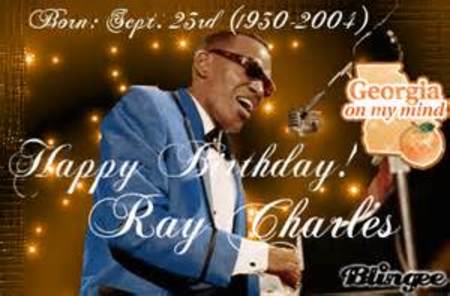
[1972]
Lyrics & music by Sadye Shepard
Album: A Message From The People
The contemplative, and questioning, "There’ll Be No Peace Without All Men As One", is a pivotal track from Ray Charles’ 1972 album, "A Message from the People". The album takes stock in a post 1960s civil rights movement America, and features Robert Kennedy, Abraham Lincoln, Martin Luther King, and John F. Kennedy on the cover.
The song is a powerful commentary, which still resonates today.
In celebration of Ray Charles’ 90th birthday (2020), Tangerine Records, the label he founded in 1962, was proud to announce the release of “True Genius” the ultimate Ray Charles collection. Featuring 90 of his greatest songs and most important recordings of his legendary career, this newly remastered set includes all of his biggest hits.
Lyrics & music by Sadye Shepard
Album: A Message From The People
The contemplative, and questioning, "There’ll Be No Peace Without All Men As One", is a pivotal track from Ray Charles’ 1972 album, "A Message from the People". The album takes stock in a post 1960s civil rights movement America, and features Robert Kennedy, Abraham Lincoln, Martin Luther King, and John F. Kennedy on the cover.
The song is a powerful commentary, which still resonates today.
In celebration of Ray Charles’ 90th birthday (2020), Tangerine Records, the label he founded in 1962, was proud to announce the release of “True Genius” the ultimate Ray Charles collection. Featuring 90 of his greatest songs and most important recordings of his legendary career, this newly remastered set includes all of his biggest hits.
What good is the sun?
(Continues)
(Continues)
Contributed by giorgio 2022/7/24 - 09:01
Get Your Rights Jack
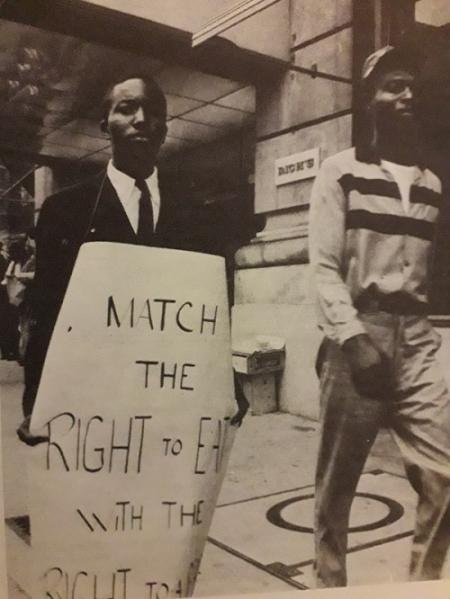
(1961?)
Nuove parole sulla musica della celebre "Hit The Road, Jack" scritta da Percy Mayfield e interpretata da Ray Charles
Testo e illustrazione ripresi da Sing for Freedom - The story of the Civil Rights Movement through its songs, edited and compiled by Guy and Candie Carawan (1990)
Nuove parole sulla musica della celebre "Hit The Road, Jack" scritta da Percy Mayfield e interpretata da Ray Charles
Testo e illustrazione ripresi da Sing for Freedom - The story of the Civil Rights Movement through its songs, edited and compiled by Guy and Candie Carawan (1990)
Get your rights, Jack
(Continues)
(Continues)
2019/1/22 - 23:21
Song Itineraries:
Racism and Slavery in the USA
Ol’ Man River
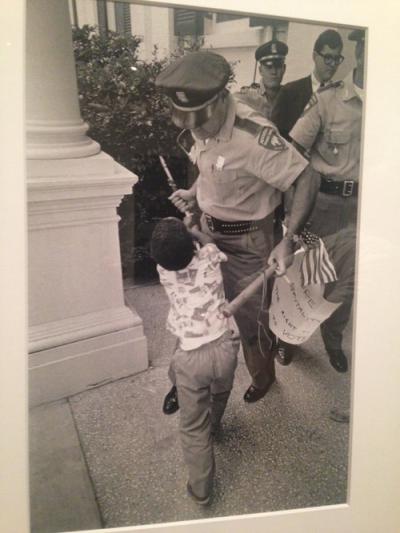
[1927]
Parole di Oscar Hammerstein II (1895-1960), librettista, produttore e direttore teatrale.
Musica di Jerome Kern (1885-1945), uno dei più grandi compositori americani della prima metà del 900.
Scritta per il musical “Show Boat” – tratto dall’omonimo romanzo di Edna Feder, melodramma a sfondo razziale - interpretata dall’orchestra di Paul Whiteman (grandissimo bandleader, detto “The King of Jazz”, 1890-1967) con il mitico Bix Beiderbecke (1903-1931) alla cornetta, fu cantata inizialmente da Bing Crosby, Jules Bledsoe e Irving Kaufman, ma l’interpretazione più famosa, per cui il brano è passato alla storia, è senz’altro quella resa da Paul Robeson nella riduzione cinematografica dello spettacolo “Show Boat”, datata 1936.
Il grande basso nero, e comunista, fu all’inizio fedele al testo originale ma poi, a partire dal 1938, inserì alcune sue modifiche ai versi.
In seguito la canzone... (Continues)
Parole di Oscar Hammerstein II (1895-1960), librettista, produttore e direttore teatrale.
Musica di Jerome Kern (1885-1945), uno dei più grandi compositori americani della prima metà del 900.
Scritta per il musical “Show Boat” – tratto dall’omonimo romanzo di Edna Feder, melodramma a sfondo razziale - interpretata dall’orchestra di Paul Whiteman (grandissimo bandleader, detto “The King of Jazz”, 1890-1967) con il mitico Bix Beiderbecke (1903-1931) alla cornetta, fu cantata inizialmente da Bing Crosby, Jules Bledsoe e Irving Kaufman, ma l’interpretazione più famosa, per cui il brano è passato alla storia, è senz’altro quella resa da Paul Robeson nella riduzione cinematografica dello spettacolo “Show Boat”, datata 1936.
Il grande basso nero, e comunista, fu all’inizio fedele al testo originale ma poi, a partire dal 1938, inserì alcune sue modifiche ai versi.
In seguito la canzone... (Continues)
Dere's an ol' man called de Mississippi
(Continues)
(Continues)
Contributed by Bernart Bartleby 2016/2/3 - 12:07
×
![]()

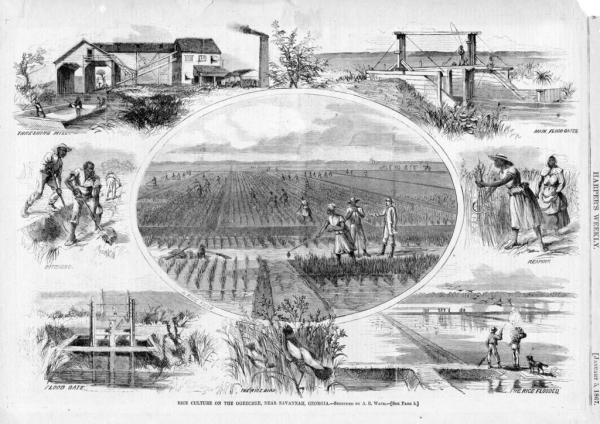
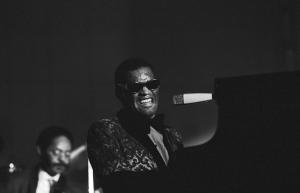
Lyrics by Stuart Graham Steven Gorrell
Music by Hoagland Howard Carmichael
Album: The Genius Hits the Road [1960]
“Georgia .. no peace I find..” ..What was Ray Charles' most famous hit of the 1960s was actually written in 1930 by Hoagy Carmichael and Stuart Gorrell and first recorded that same year by Hoagy Carmichael himself. However, the song has been most often associated with soul singer Ray Charles, who was a native of the U.S. state of Georgia and recorded it for his 1960 album The Genius Hits the Road.
It has been asserted that Hoagy Carmichael wrote the song about his sister, Georgia.. But Carmichael wrote in his second autobiography Sometimes I Wonder that saxophonist Frankie Trumbauer told him he should write a song about the state of Georgia. He jokingly volunteered the first two words, “Georgia, Georgia...”, which Carmichael ended up using while working on the song... (Continues)